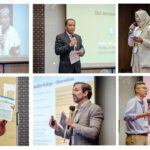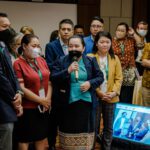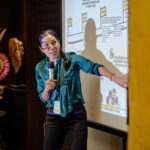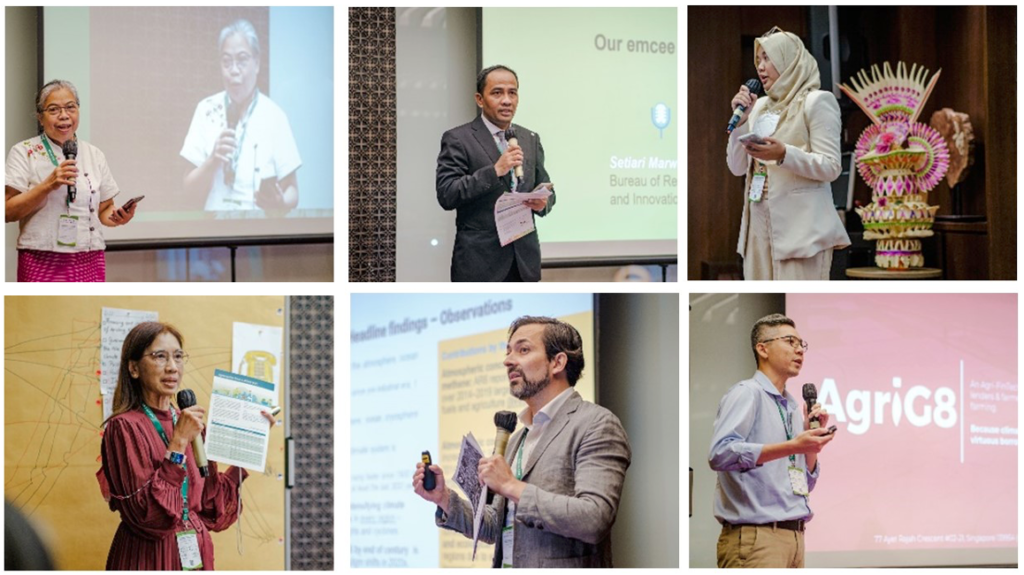
A group of 30-plus focal points of the ASEAN Climate Resilience Network (ASEAN-CRN) and the ANGA together with partners gathered in the event “Transformation to Low Emissions and Resilient Agrifood Systems: A Knowledge Exchange Event and Climate Policy Negotiations Training” held during 27-29 September in Bali, Indonesia. The event was aimed at discussing and updating the results from the 56th sessions of the UNFCCC (SB56) held last June in Bonn, Germany, while preparing for the Koronivia Joint Work on Agriculture (KJWA), regarded as the highlighted agenda of the upcoming 27th UN Climate Change Conference (COP27), to be taken place in Egypt in November.
Leading experts on climate policy negotiations in the scope of the United Nations Framework Convention on Climate Change (UNFCCC) and its Paris Agreement were also invited to join the three-day hybrid meeting to support and encourage the onboarding and participation of new ASEAN Negotiating Group for Agriculture (ANGA) delegations. Participants also learn more about net zero and low carbon emission concepts and their relevance for agriculture, acquire basic knowledge and skills needed for climate policy negotiations in COP27, exchange knowledge and experience among peers, and network.
“The Sixth Assessment Report of the United Nations Intergovernmental Panel on Climate Change (IPCC) calls for a major paradigm shift, particularly in food systems. The negative impacts from climate change on agriculture have already occurred in various places such as the shift in seasons, decreased crop yields, and decline in animal health due to heat stress, among others. Abatement of methane emissions can lead to a larger impact than the carbon dioxide abatement due to methane half-life of nearly a decade in the atmosphere. Climate-resilient and low emissions agrifood systems are a crucial way to tackle climate change impacts and deliver adaptation and mitigation co-benefits.” said Beau Damen, Natural Resources Officer – Climate Change & Bioenergy, FAO Regional Office for Asia and the Pacific.
“Decarbonisation refers to measures through which a business sector or an entity or government organization or farm reduces its carbon footprints, primarily Greenhouse Gas (GHG) emissions. Even though it is ambitious in the context of ASEAN implementation, it is attainable and there is huge GHG emissions mitigation potential from the land use and agriculture sectors, particularly in rice production, protection and restoration in the natural landscape.” said Dr. Ciniro Costa Junior, from the Alliance of Biodiversity International and the International Center for Tropical Agriculture (CIAT).
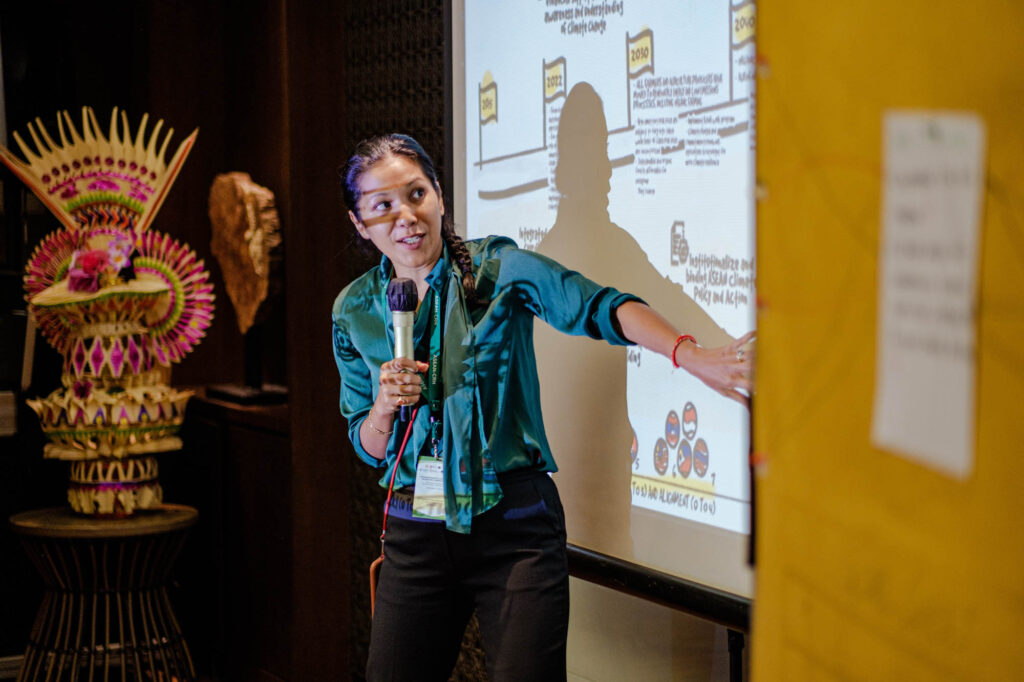
Participants actively engaged in the visioning exercise, led by the climate foresight expert and professional graphic illustrator. The visioning exercise allowed the participants to re-visit a visual vision map, a collaborative effort elaborated on common goals, values and actions, agreed in the ASEAN-CRN Umbrella Event organised in March 2022. The exercise now employs the Backcasting method with the participants to identify transformative actions and prioritized interventions. Lastly, participants gained insights from the private sector, which shared business models on technology and finance for rice farmers. The case example illustrated the application of technology and community involvement in Measurement, Reporting, and Verification (MRV) in rice fields in Myanmar.
“Whether it is net zero or decarbonisation, a baseline must be established. Since data collection is complicated and time consuming, it is worthwhile cultivating famers’ habits to perform self-recording.” said Mr. David Chen, CEO of AgriG8, an Agri-FinTech platform from Singapore.
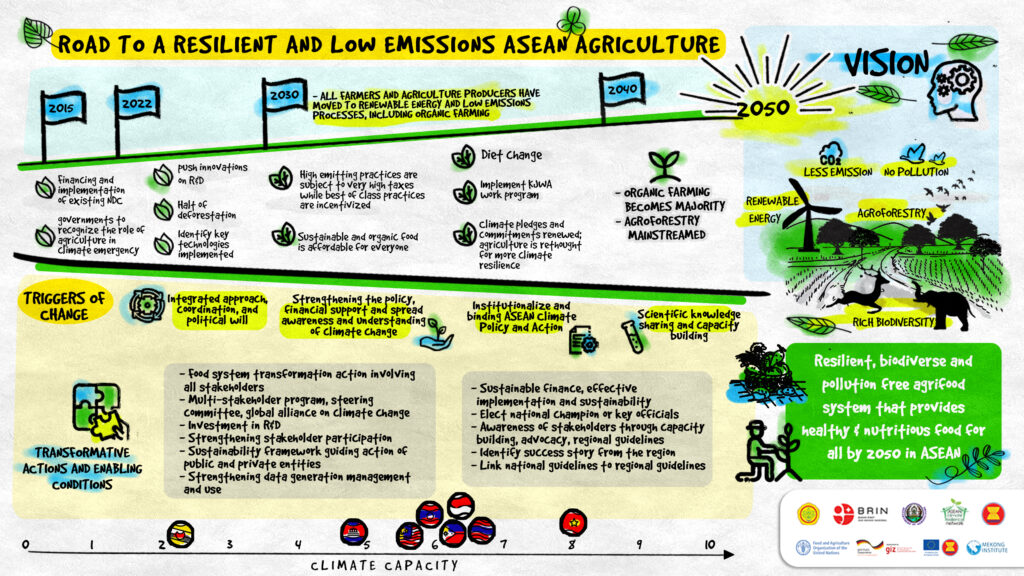
Gearing up for COP27
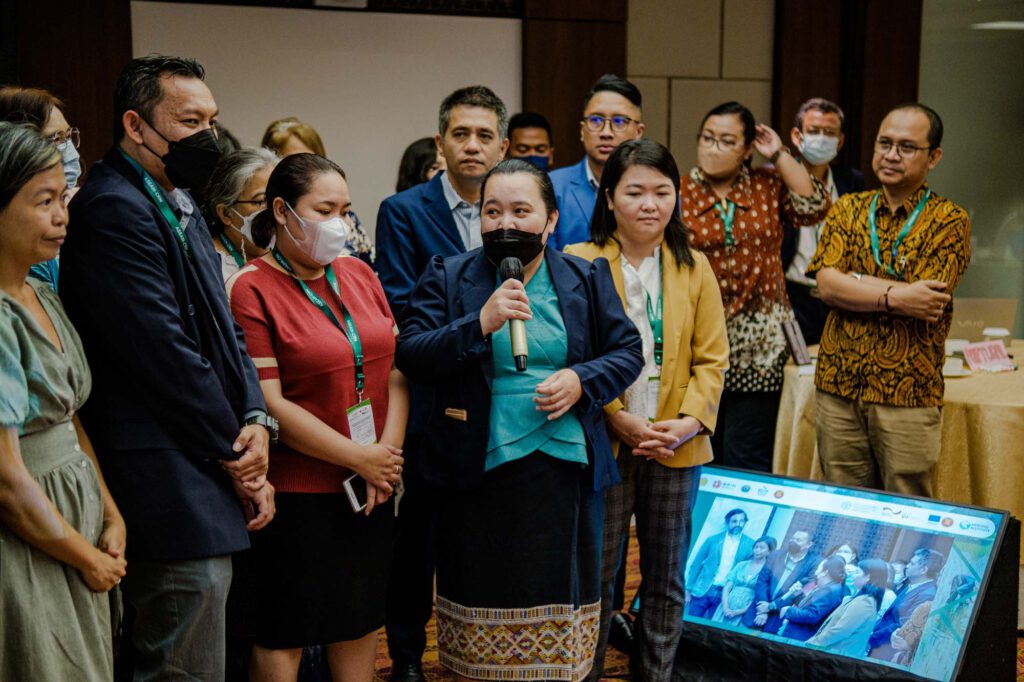
The second and third day of the meeting focused on the basics of the United Nations Framework Convention on Climate Change (UNFCCC) negotiation processes and protocols. Besides the ASEAN-CRN, the ASEAN Negotiating Group for Agriculture (ANGA) focal points honed their climate negotiation skills in preparation for COP27. Mr. Gonçalo Cavalheiro, a long-time negotiator trainer, explained the UNFCCC negotiations to the ANGA focal points. Several seasoned climate negotiators shared their insights during the training. Interest was also expressed in the KJWA, which potentially recommends a decision to adopt in COP27. The day ended with a negotiation simulation where the ANGA focal points acted as climate negotiators.
“A good negotiator must have both soft and hard skills. Strong communication, active listening, genuine interest in others, ability to trust others, and honesty are all important skills among others.” Said Mr. Gonçalo Cavalheiro, Partner, CAOS Borboletas e Sustentabilidade.
About the event
The Indonesia National Research and Innovation Agency (BRIN), together with the Thailand Department of Agriculture (DOA) as Chair of ASEAN-CRN hosted the “Transformation to Low Emissions and Resilient Agrifood Systems: A Knowledge Exchange Event and Climate Policy Negotiations Training” in a hybrid format, allowing participants to join online and onsite. The event participants consisted of national representatives as ASEAN-CRN and ANGA focal points, development organizations, and non-governmental organizations. This constructive event was jointly organized by the Food and Agriculture Organization of the United Nations – Regional Office for Asia and the Pacific (FAO-RAP), the Enhanced Regional EU-ASEAN Dialogue Instrument (E-READI), GIZ through the “Promotion of Sustainable Agricultural Value Chains in ASEAN” (ASEAN AgriTrade) Project, commissioned by the German Federal Ministry for Economic Cooperation and Development (BMZ), and Mekong Institute (MI) on behalf of the ASEAN AgriTrade Project. Documentation of the events can be found at this link. ■



